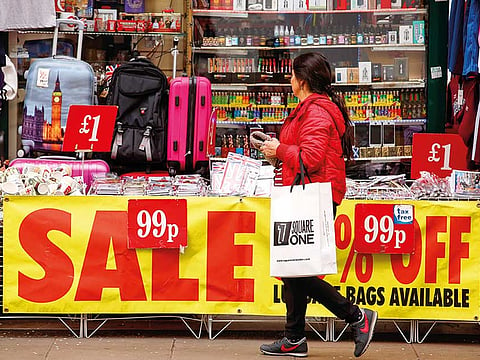How Brexit will impact the UK economy and the world in 2021
After prolonged talks, the latest deal is seen accelerating economic recovery this year

Dubai: After talks that lasted nearly three years, Britain reaching a momentous deal on the country’s exit from the European Union days before the critical December 31 deadline, is viewed as accelerating the economy’s recovery in the year ahead.
A new era has begun for the United Kingdom after it completed its formal separation from the European Union and stopped following EU rules at 2300 GMT on December 31, as replacement arrangements for travel, trade, immigration and security co-operation came into force.
2021 is bound to be a better year for the economy than 2020, viewed Paul Dales, Chief UK Economist at London-based Capital Economics, late last month, while also noting that that deal removes one potential brake on economic recovery amid a virus-plagued backdrop.
“While the news may not boost the financial markets by much more than it already has, but a decent economic recovery from the COVID-19 crisis in the second half of 2021 may mean that the pound rises from $1.36 now to around $1.40 by the end of 2021 and the FTSE 100 climbs from 6,500 points to about 7,500,” Dales evaluated.
Backdrop of stricter COVID-19 limits
The Brexit-related last-minute progress came as the country imposed a new set of COVID-19 restrictions, following a new coronavirus strain found in some parts of the country. The current lockdown closely resembles the country’s lockdown in November.
“The new Tier 4 COVID-19 restrictions raise the chances that the economy stagnates, if not contracts, in the first three months of 2021,” wrote Ruth Gregory, Capital Economics’ Senior UK Economist. “If the economy is heading for a double-dip, at least the second leg down will be much smaller than the first.”
“But this is only because activity in some sectors never fully recovered and therefore cannot fall as far this time,” Gregory added. “And if Tier 4 restrictions keep GDP some 14 per cent below its pre-crisis level, this is of little comfort.”
With the UK and the EU having agreed on a trade deal and shut the book on more than four years of uncertainty over how the country would conduct business with its biggest export market following Brexit, UK companies were relieved at retaining tariff-free trade with a market of 450 million consumers that buys more than 40 per cent of Britain’s exports and provides more than half its imports.
Avoids specter of a no-deal Brexit
Although the deal avoided the specter of a no-deal Brexit, spared the UK some of the most dire potential consequences from Brexit as it battles a crippling pandemic, and should give a short-term boost to the economy, analysts view the trade agreement will still scar the economy at a time when it faces a jobs crisis and the worst recession in more than 300 years.
Economists at Citigroup estimate that the UK economy will produce 2 per cent to 2.5 per cent less in 2021 than it would have with an extension of ties with the EU. But in the short term there also are benefits for both the EU and the UK.
A free trade agreement sealed on Christmas Eve ensured that Britain and the 27-nation EU can continue to buy and sell goods without tariffs or quotas, which should help protect the $894 billion in annual trade between the two sides, and the hundreds of thousands of jobs that rely on it.
However, companies face sheaves of new costs and paperwork, including customs declarations and border checks and experts view that traders will for now struggle to digest the new rules imposed by the 1,200-page trade deal.
UK economic recovery may slow
Although Britain’s economy is widely seen bouncing back next year from the pandemic, a fifth year of weak business investment will delay a full recovery until the end of 2022.
A combination of Brexit uncertainty, which is expected to continue into next year even with a deal, and the blow to business confidence during the first and second lockdowns will likely cause a delay in rebound in private sector investment.
Business investment has remained flat since the 2016 Brexit vote as companies struggled to assess the impact of Brexit while negotiations continued until late last month.
However, many economists are still optimistic and remain of the view that the vaccine was an important element in the recovery and would allow household incomes and spending to be a catalyst for revival from mid-2021 onward.
Sign up for the Daily Briefing
Get the latest news and updates straight to your inbox





